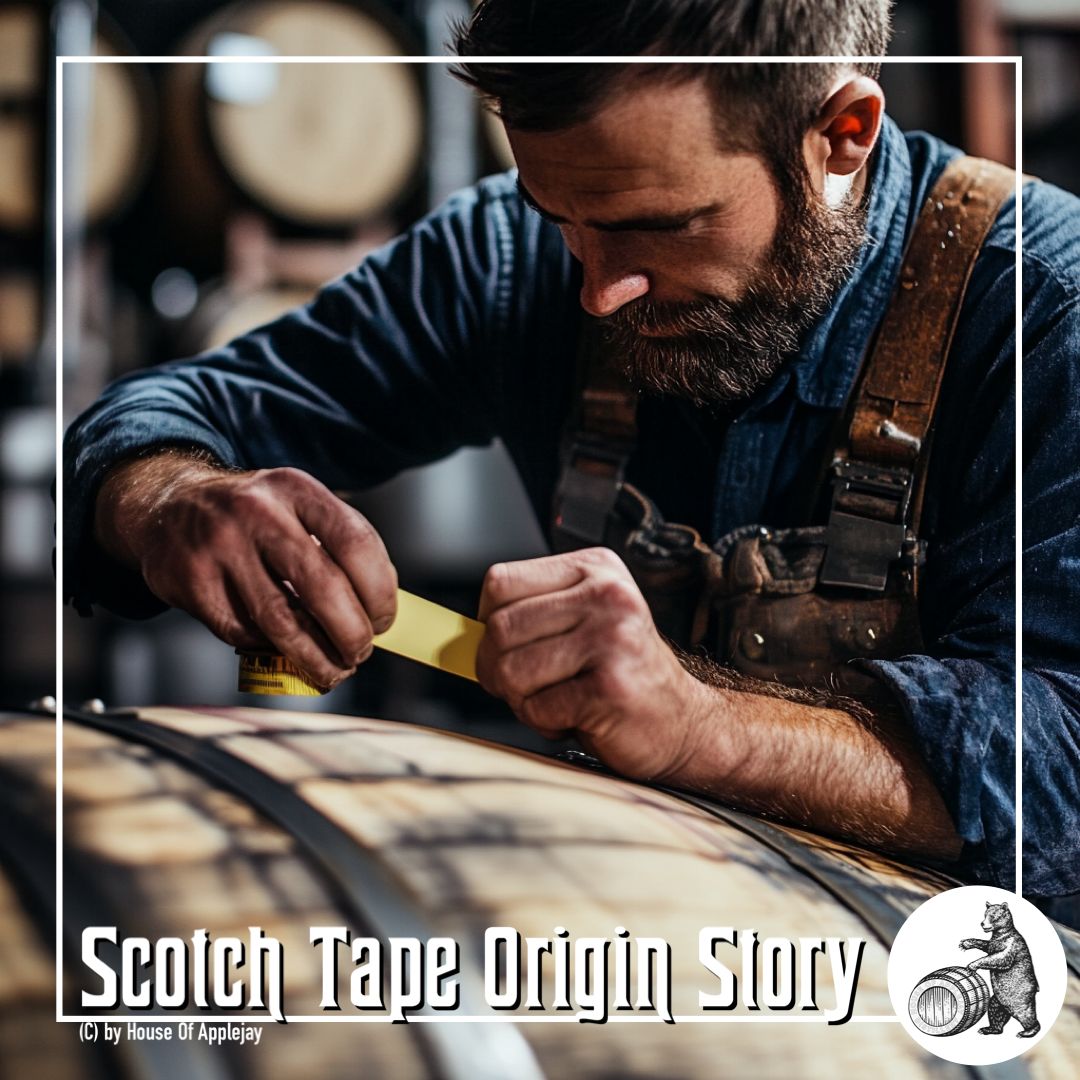The Scotch Tape Origin Story
The Sticky Story of Scotch Tape: A Whisky-Inspired Legacy
The Birth of Scotch Tape: 1925 – 1930
The journey of Scotch tape begins in the 1920s when Richard Drew, an engineer at 3M, sought to solve a problem for the automotive industry. In 1925, Drew invented masking tape, designed to help automotive workers achieve clean, sharp lines when painting cars. This early version of adhesive tape proved revolutionary, allowing painters to create precise lines without the mess of liquid adhesives.
In 1930, Drew perfected his invention by creating transparent adhesive tape made from cellulose, a clear plastic material. This new creation became known as Scotch tape, and it was immediately recognized for its versatility, enabling people to easily seal, repair, and affix objects without the mess of glue. But the true origin of the name “Scotch” was not just a reflection of its innovation—it was influenced by the heritage of Scotland’s iconic whisky.
The Whisky Connection: 1930s and the Great Depression
During the Great Depression, when resources were scarce and ingenuity was essential, workers at distilleries and whisky warehouses began using this new adhesive tape to seal leaking or cracked whisky casks. At the time, Scotch whisky was a symbol of Scotland’s cultural and economic strength. The production of this renowned spirit was an important industry for the country, and its export was integral to Scotland’s economy.
Scotch whisky had become synonymous with quality, craftsmanship, and the rugged spirit of the Scottish people. The barrels that held this prized liquid were often prone to leaks due to the aging process, and distillery workers sought practical solutions to preserve the whisky within. It’s said that these workers, using Drew’s tape to mend the barrels, dubbed it “Scotch tape.” This nickname was a playful tribute to the spirit that had brought so much economic and cultural significance to Scotland. It also reflected the practicality of the tape itself—ideal for the no-nonsense task of sealing whisky barrels during a time when every drop of whisky was precious.
The Alternative Origin: Scottish Frugality and a Tape Named “Scotch”
However, the whisky cask story isn’t the full picture. According to 3M’s historical records, the “Scotch” name actually originated earlier, during the development of masking tape. Early versions of the tape weren’t sticky enough for some users, and a frustrated painter reportedly told Drew to take his “Scotch” tape back to the drawing board. The term “Scotch” was slang for something cheap or frugal, a stereotype associated with the Scottish. Drew improved the adhesive, and 3M embraced the name, turning the critique into a quirky trademark.
The Lasting Connection to Whisky and Beyond
Regardless of its precise origins, Scotch tape has left an enduring mark on both households and industries around the world, but its connection to alcohol, particularly whisky, continues to stand out. From its humble beginnings in the 1920s and 1930s, it has grown into a staple in distilleries and warehouses—places where whisky production and storage are paramount. While its original invention focused on automotive work, the tape’s use in preserving whisky casks during the Great Depression speaks to its lasting influence in the alcohol industry.
Today, Scotch tape’s legacy can still be felt in distilleries around the world. It symbolizes the ingenuity and resourcefulness of those who work with fine spirits, and its connection to whisky, whether myth or fact, remains a charming tribute to Scotland’s iconic export. Just as whisky is an ever-present fixture in Scottish culture, Scotch tape has secured its place in everyday life, proving that a simple tool can be as enduring as the whisky barrels it once might have helped preserve.
The Scotch brand, now encompassing a wide range of adhesive products, continues to remind us of the practical, no-nonsense nature of whisky itself. So, the next time you use a roll of Scotch tape, think of the whisky cask repairmen who may have used it to keep Scotland’s prized spirit intact. Whether it’s sealing up a package or patching a whisky barrel, Scotch tape’s lasting impact remains tied to a legacy of quality, tradition, and, of course, whisky.

